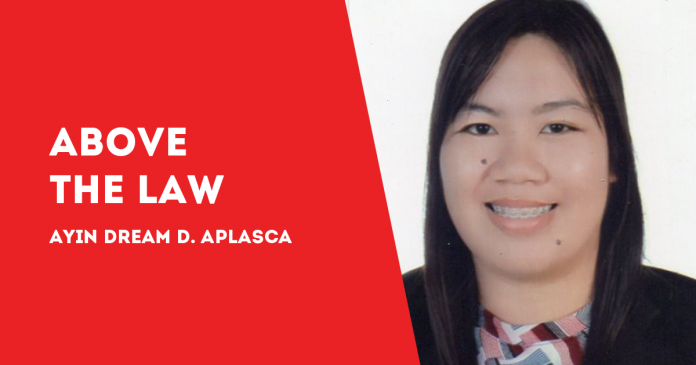
ON MONDAY, former senator Antonio Trillanes IV accused President Rodrigo Duterte and Sen. Bong Go of committing plunder worth P6.6 billion of government contracts in Davao Region.
Sen. Bong Go’s family has construction firms in Davao City. The CLTG Builders and Alfrego Builders are owned by Go’s father and half-brother, respectively. Both construction firms are Davao-based.
According to Trillanes, these firms acquired multibillion-peso government projects since Duterte was mayor of Davao City.
This article will discuss the crime of plunder but no comment or opinion on the merits of the accusations of Trillanes as the matter still needs investigation and evidences.
What is the crime of plunder?
The Anti-Plunder Law or Republic Act (RA) No. 7080 was enacted after the Marcos dictatorship. It was alleged when then-president Ferdinand Marcos and his wife Imelda amassed ill-gotten wealth.
Section 2 of RA No. 7080 defines and penalizes the crime of plunder. The offender is a public officer who, by himself or in connivance with members of his family, relatives by affinity or consanguinity, business associates, subordinates or other persons, amasses, accumulates or acquires ill-gotten wealth through a combination or series of overt criminal acts.
The aggregate amount or total value of the ill-gotten wealth amassed, accumulated or acquired is at least P50 million.
Once the offender is proven guilty of the crime he shall be punished by reclusion perpetua to death. Additionally, any person who participated with the said public officer in the commission of an offense contributing to the crime of plunder shall likewise be punished for such offense.
Plunder may be committed through:
(a) misappropriation, conversion, misuse, or malversation of public funds or raids on the public treasury;
(b) by receiving, directly or indirectly, any commission, gift, share, percentage, kickback or any other form of pecuniary benefits from any person and/or entity in connection with any government contract or project or by reason of the office or position of the public officer;
(c) by the illegal or fraudulent conveyance or disposition of assets belonging to the National Government or any of its subdivisions, agencies or instrumentalities of Government owned or controlled corporations or their subsidiaries;
(d) by obtaining, receiving or accepting directly or indirectly any shares of stock, equity or any other form of interest or participation including the promise of future employment in any business enterprise or undertaking;
(e) by establishing agricultural, industrial or commercial monopolies or other combinations and/or implementation of decrees and orders intended to benefit particular persons or special interests; or
(f) by taking advantage of official position, authority, relationship, connection or influence to unjustly enrich himself or themselves at the expense and to the damage and prejudice of the Filipino people and the Republic of the Philippines.
If the accusation of Trillanes will prosper there is a great burden on the prosecutors to mount a case exactly to constitute plunder as well as to provide the evidence to support the charges. According to the former, this will happen after the subjects are no longer in public office. Let’s see!/PN

